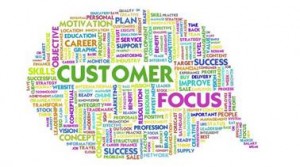
For over 25 years, we’ve been helping innovative people get their products on store shelves. In fact, our products have sold in over 1,200 stores.
This feat wouldn’t have been possible if it wasn’t for our customer obsession and by that we mean our clients – the inventors.
In a recent article published on the Huffington Post titled, Customer Obsession is the New Design, our customer-driven mindset was echoed.
Airbnb’s head of design, Alex Schleifer, started a critical conversation about why design-led companies simply don’t work.
The head of design at a lucrative company is saying that design-led companies aren’t any good? Though this claim may be a bit befuddling, at the core of this argument is a larger conversation, one that’s rooted in the customer.
In the article, Rich Nadworny, Principal at Empatico, design consulting, argues that companies need more people who are “Customer Obsessive” and to use design tools to invent new things, new processes and ultimately, new experiences.
“If you’re customer obsessive, you must know what matters to someone else. You feel the drive to solve their problem first as a way of solving yours. That’s where innovation that matters happens,” he said.
Nadworny made note of something that stuck out, the idea of feeling the need and the desire to solve the customer’s problem first as a way of solving yours.
The notion of solving problems is at the core of inventions; and, at Davison, we work diligently every day to help our clients find a Better Way to do something through their problem-solving inventions.
That’s why this article reminded us of the Davison Inventing Method, a process that’s solely focused on our clients and their ideas.
Our work at Davison wouldn’t be possible if it weren’t for the creative minds of our clients, the inventors, who take a chance on their inventions and work with us to possibly turn their dreams into reality.
So in the end, we think it’s perfectly fine to have a healthy obsession with being customer obsessive.
Copyright Davison, 2015
A typical project does not get a royalty agreement, sell in stores or generate a profit.
Sources:
- Huffingtonpost.com